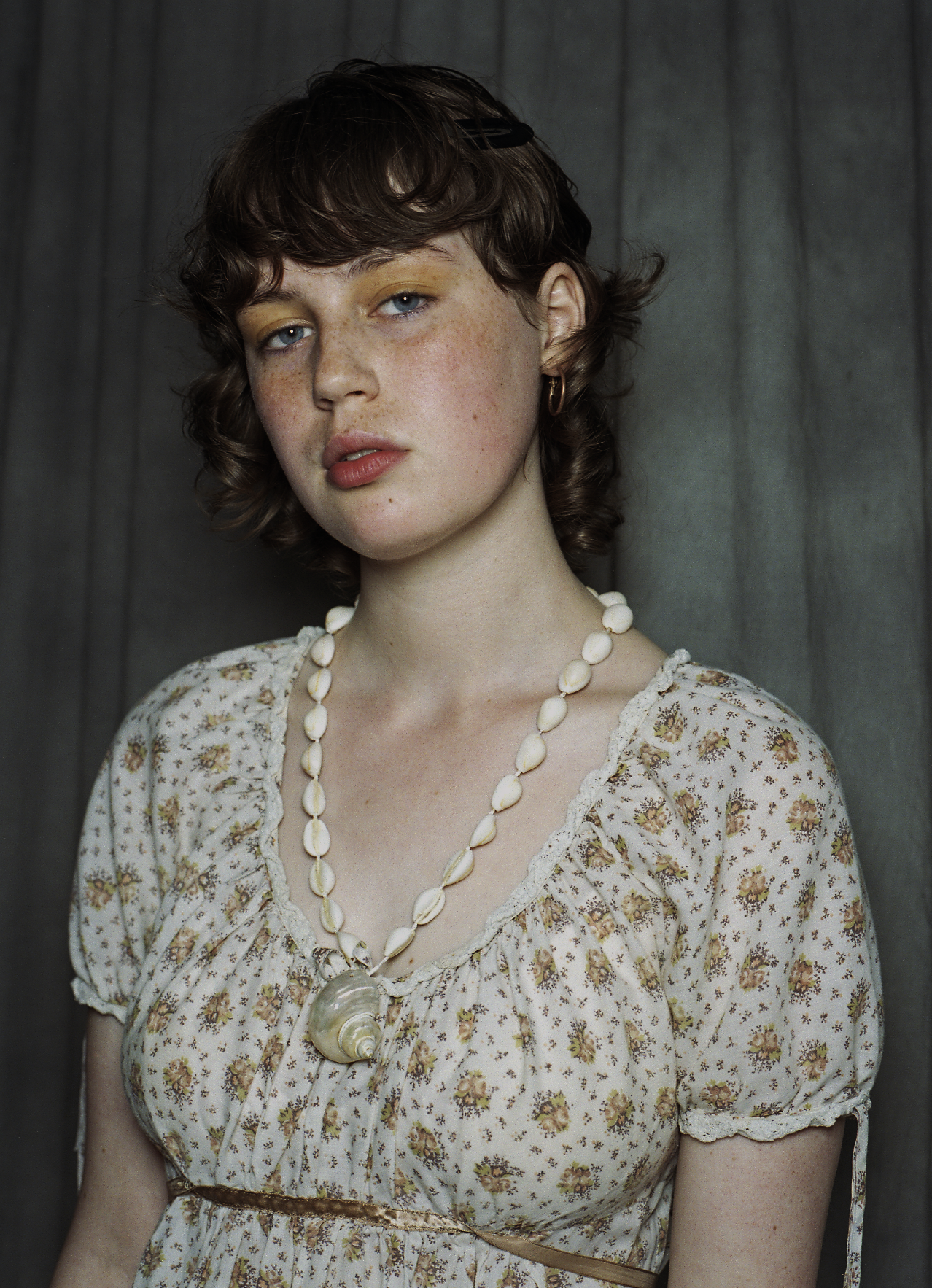Words Brit Parks
Women have been the center influence of men in film that is beyond measure. Godard, Fellini, Cassavetes, Lynch. There is no argument against their world of stun. This is the seeing glass that feeds of women under the influence of film behind the lens. Jaclyn Bethany directed the cult favorite, The Last Birthday, starring Greta Bellamacina, where she has given her own script-take to the last moments of the infamous execution of the Romanov children in exile. Her telling doesn’t feel like an interpretation which is a through line in Bethany’s work. Her version is a created dignity for innocent young women in history. It is the humanization of birthday tears that exist even amongst banishment. We don’t become less human in capture, a daring and imperative point. Bethany has a fierce drive in her filmmaking – there is a layer of measures being considered simultaneously. Formalism asks questions of modernity and reference begs for life anew.
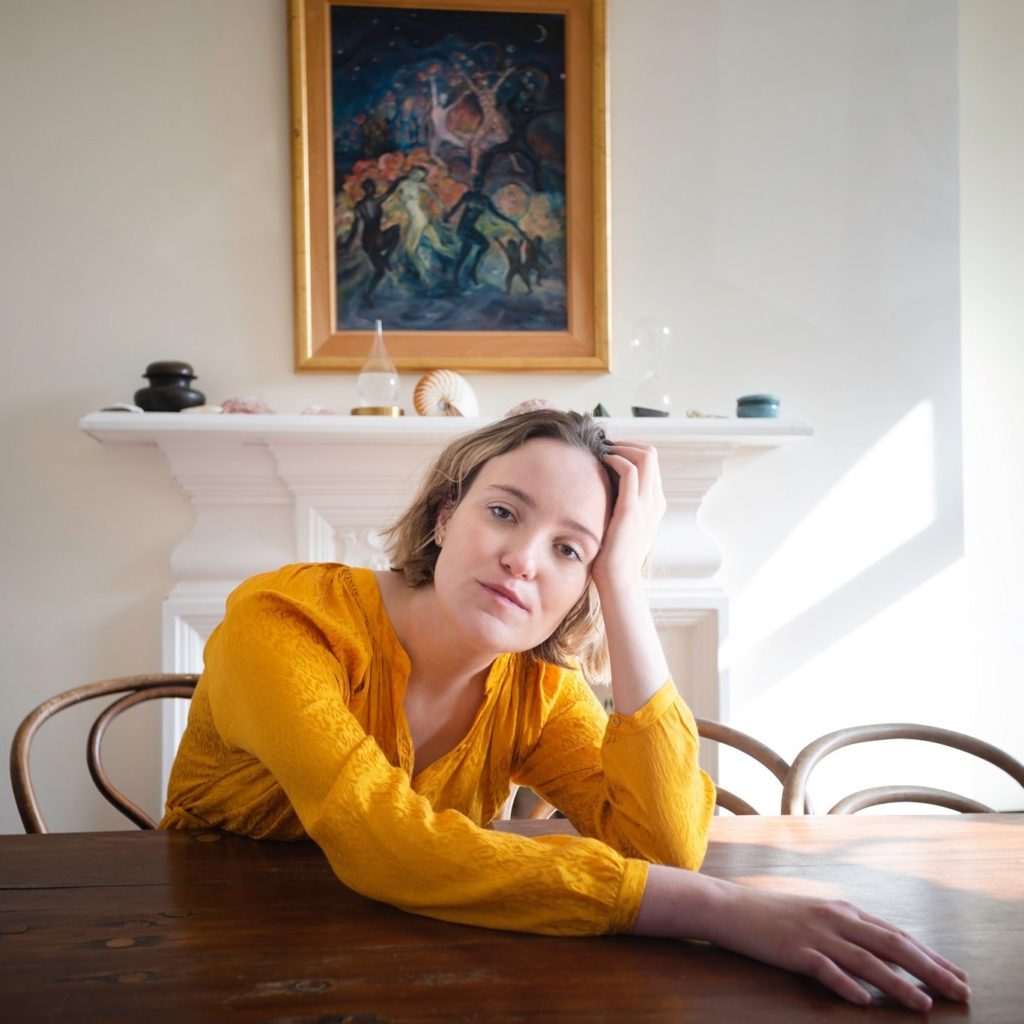
Bethany recently announced the creation of JULIET, a women’s film festival to take place in the coming year. Yes, it’s named for a Shakesperian reference from the ages, and yes it will reel out virtually. Again, the force of contradictions she wants to take on for herself and her contemporaries. She has a long standing relationship with poet, actress, and filmmaker Greta Bellamacina who plays central roles in several of her films. It is apparent from the light the screen emits there is a chemistry that Cassavetes had with his subjects. An ethereal thread of non-verbal language that exists in moments of spark. We cannot touch the physicality of film or touch the characters skin however film has been creeping into our veins and pushing out through our heart valves in an entirely physical manner for decades. Bethany is here to hypostatize women’s place in film to be inclusive to the canon in history that it deserves beyond being a muse under the lights.
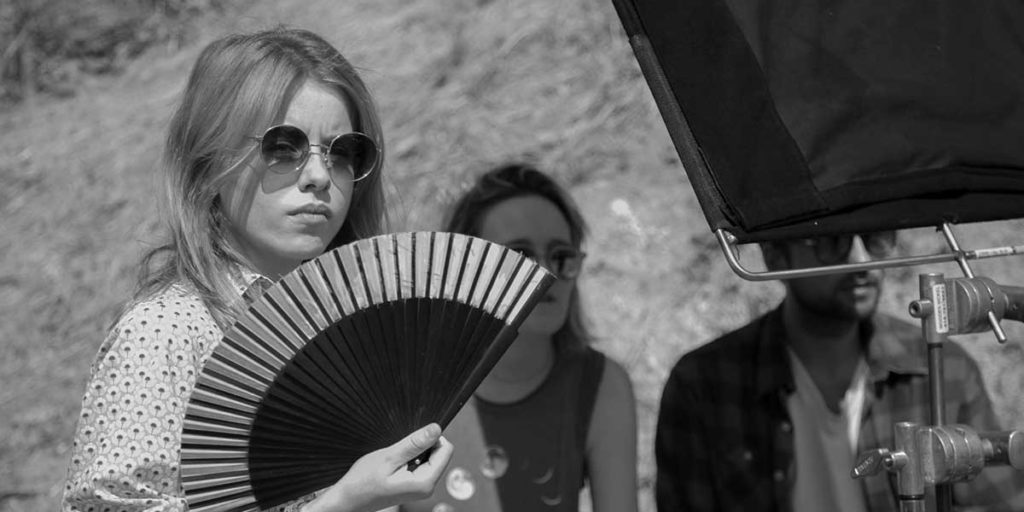
Brit Parks: In your film The Last Birthday, you depicted an experimental telling of the last moments of the Romanov children. Can you speak to why that particular story interested you and what you felt your version focused upon.
Jaclyn Bethany: I love history and I also love films that interpret history in a unique and controversial way. Films like Marie Antoinette, Elizabeth, and most recently Tony MacNamara’s The Great. We watch film and television to be entertained, and I love pieces that use history as this kind of inspiration. I suppose I tried to do that with The Last Birthday. It is a short film, shot in one day, in a way that is supposed to look and feel continuous. I love Russian history, the Romanovs are a huge fascination for me. I think I was also interested in focusing on a sister that wasn’t Anastasia – the sister the world is most familiar with, but also portray them visually so they are recognizably the Romanovs under capture. I ended up focusing on Maria, the second youngest who may have had a relationship with one of the Bolshevik guards and wrote it with Greta (Bellamacina) in mind. I mean the whole thing was pretty fictional, other than yes, their fate. But I loved exploring the strength and beauty that each of the siblings represented. They were children brought into this life, they did not choose it. I think I found that very fascinating.
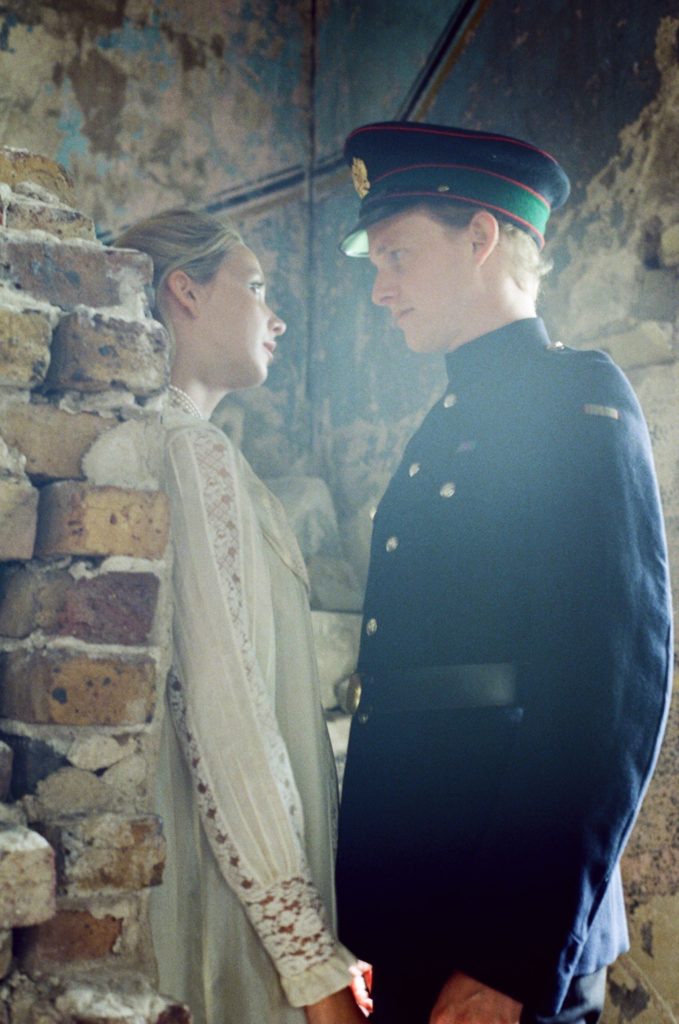
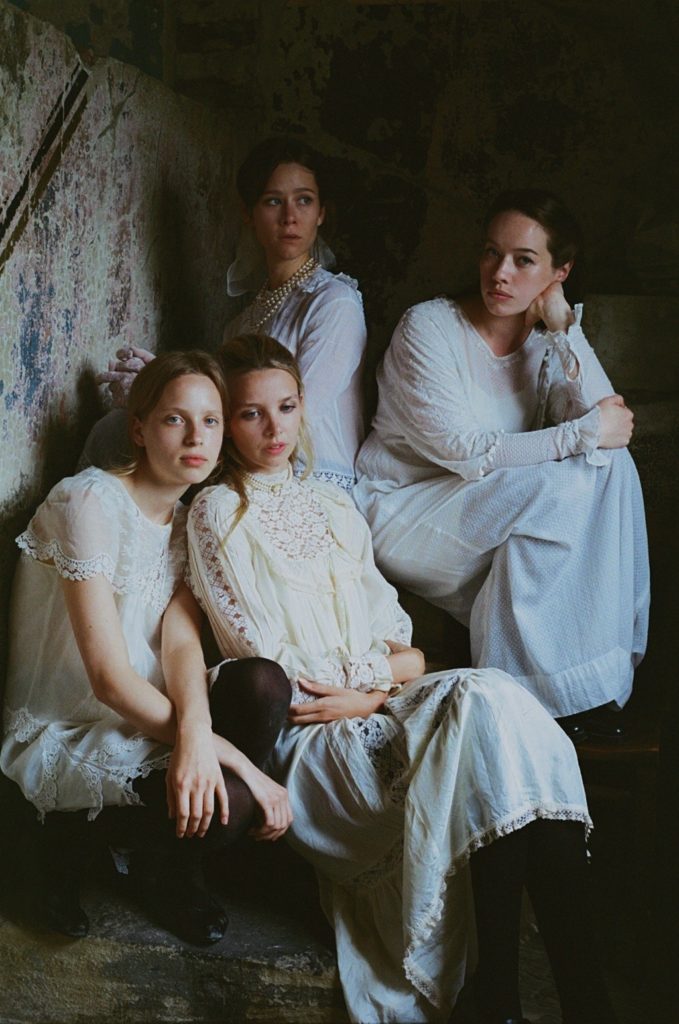
BP: I am interested in the process behind the material you write. What first piques your interest. Do you develop the script and then cast or do you write for certain actors.
JB: That’s a good question and something I am often asked. I think I am obviously attracted to history and nostalgia – but also some of my work is based in naturalism. As an artist, I don’t believe in limiting myself. Quite the opposite actually. My interests are vast, and often have to do with where I am in my life. I wrote a piece called The Rehearsal – which is a pilot and also a digital series, that was just nominated for two Emmys. It combines my fascination with artists in the theatre world and the complexity of multi-generational women and their relationships. In the series, there’s a play within the film, as the main character is working on the lead role in Miss Julie. I had always wanted to explore that play, there are so many interesting themes such as gender roles and the exploitation of the class system that are explored within the play. I think it’s cool when the themes in one aspect of a project crossover to another.
Sometimes I write for actors. I think it depends on the project. In Highway One for example, that was pretty much cast really word of mouth. Because of the nature of the project, I really wanted to create a pretty unique ensemble, I love ensemble pieces, that may become my thing. My first feature (Indigo Valley, out this September) was centered around three characters and I found it very challenging. I have also written parts with actors in mind, because I am familiar with their work and hopefully can play to their strengths. For example, Tina (Benko), who plays Helen in The Rehearsal and received an Emmy nomination, I wrote that part with her in mind. Other times, I work with a Casting Director who can expand my network of talent. Being an actor myself I love actors, and I love to figure out how to craft their performance through casting, scene work, the placement of the camera and editing. There’s so many elements in bringing a performance to life.
BP: What filmic aesthetics are critical to you. Do you meticulously map out the cinematography before or allow room for it to develop on set.
JB: I like color, I am drawn to natural performances. I think lighting and also editing can entirely change a film. When I am watching a film I really like to feel that I am with the characters – that’s something that I have tried to carry into my work. Regarding cinematography, it’s a bit of both. In general I have been working with the same cinematographer Irene Gomez-Emilsson on my long form projects, and we have developed a sort of understanding of how to work together – like a visual language and trust. We always make an extensive shot list and plan, but things also always change on set. And I like improvisation with the camera too. Like feeling what is happening in that moment and capturing it. That can be so fun and also capture the best, most natural moments.
BP: Can you talk about your personal style as a director. What are things you consider your signature.
JB: That is constantly evolving and forming. I don’t know if I have a signature, maybe more of an aesthetic. I think I try to create specific worlds but also hopefully have range. Sometimes I am in my own films. I haven’t been making films for that long, only about four years. I am very much an early career director. I am in the process of putting all my short films online, so maybe I will go through and look at the similarities. I think something like a signature style is more evident to an audience or critic than the filmmaker themselves.
BP: I know you have worked with actress Greta Bellamacina on several films. How has your relationship evolved through working together.
JB: Greta is one of my longest adult friendships. That’s very special. We met in our early 20’s. She is someone who I believe can do it all. We are extremely similar but also very different. Both multi-hyphenates. It definitely inspires me with talent in poetry and the way she weaves her words throughout all her work. It felt very natural working with her. I think our first film project was the short film The Last Birthday, though it feels like we have always worked together. She had a small role in my debut feature, and gives a delightfully real and comedic performance in Highway One as Ira, a displaced British partygoer, who is also a mystic. I mean, yes, we have changed a lot since we first met but our understanding of each other and admiration for each other’s work has remained and grown. I’ll always be her biggest fan.
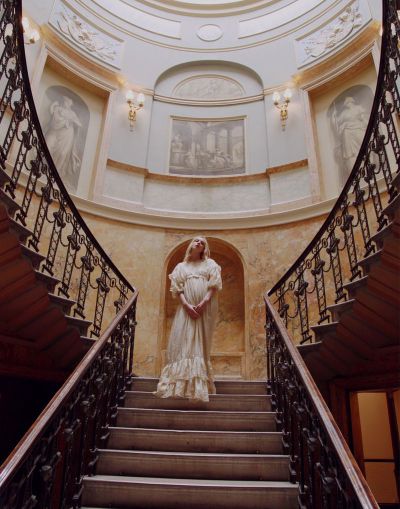
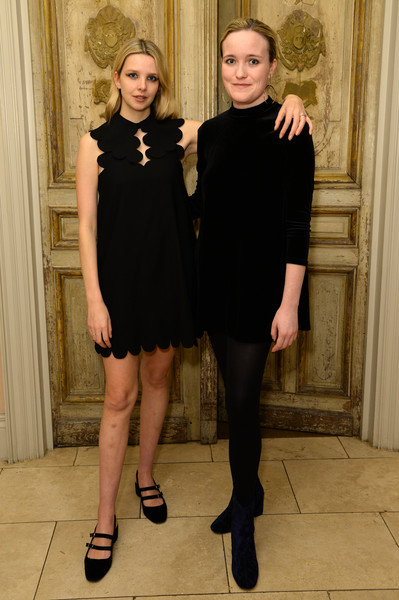
BP: Your current project is a women’s film festival, JULIET, that will take place online due to current circumstances. Can you speak to the catalyst for this project. Whose work we can expect to see.
JB: Yes, the idea entered my head talking to a friend of mine who is doing a PhD on Icelandic cinema. I thought she and I could start something that looked into women in cinema, but then I didn’t want to limit the project to just film. I also previously collaborated on an online women in the arts platform called Constellation, so in a way it’s also a kind of extension of that mixed with a few festivals I have attended that I found inspiring, but maybe sometimes missing something. I want to keep it homemade, and I have many friends in different areas of the arts (theatre, poetry, visual arts, arts management, photography) especially in London that I felt could contribute to this idea in some way. Then I realized what I was trying to do was too large, and then COVID happened. But out of that, I had time to actually ponder what Juliet might be. I like the name, that Juliet is Shakespeare’s most famous heroine, but she’s also very much open to interpretation.
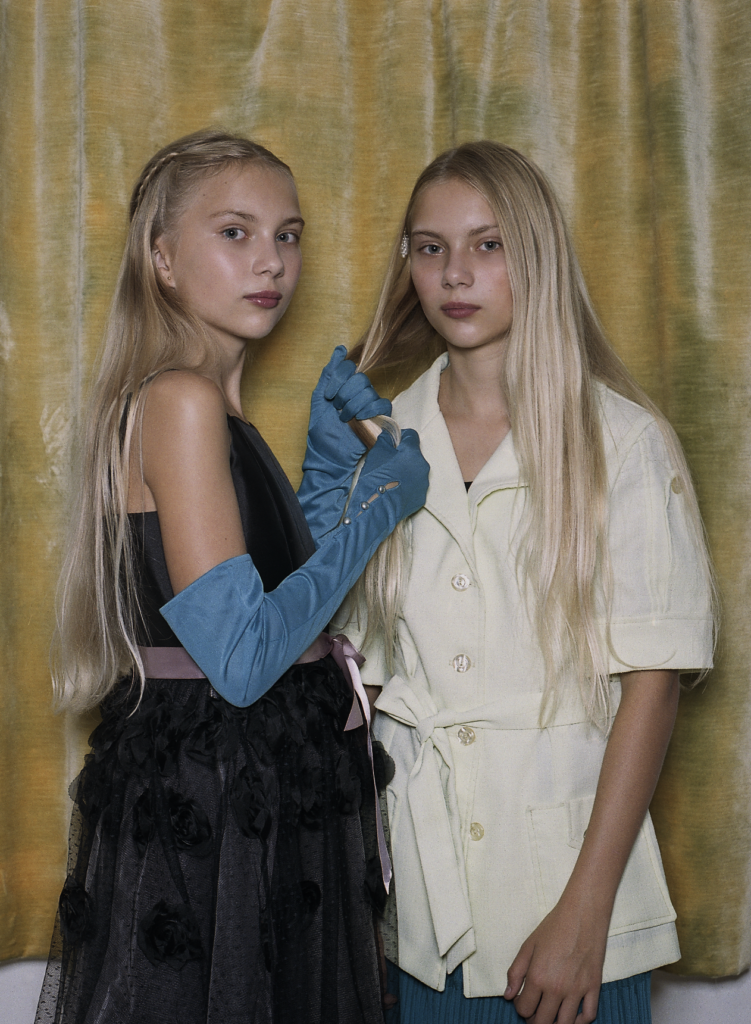
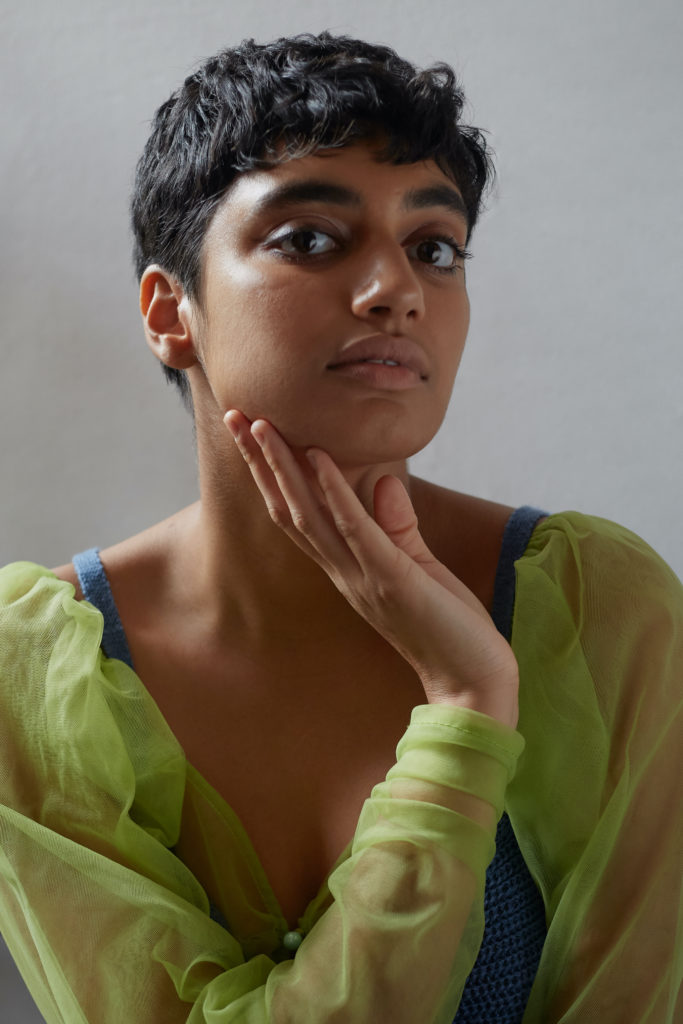
BP: As part of JULIET, you collaborated on a shoot of 30 different women on a single day in London. Can you talk about that collaboration and the ideas behind it.
JB: It was really fun! There were alot of young women, but we didn’t have a second off. The first idea was that these girls were all auditioning for a fictional production of Juliet – then that quickly turned documentary style, because I was really interested in who all these diverse women were and what they had to say. So, in a sense, the film that came out of it is in four parts and will play before each film shown at the eventual festival, and used to promote the festival as well. I worked with a few friends to get the group of girls together: actor/theatre maker Allegra Marland, artist Domenica Marland, actor/filmmaker Lucy Chappell and casting director Lisa Dymph-Megens all helped bring it to life. I was excited so many women responded to it. Now, it feels even more relevant than back in September when we shot it.
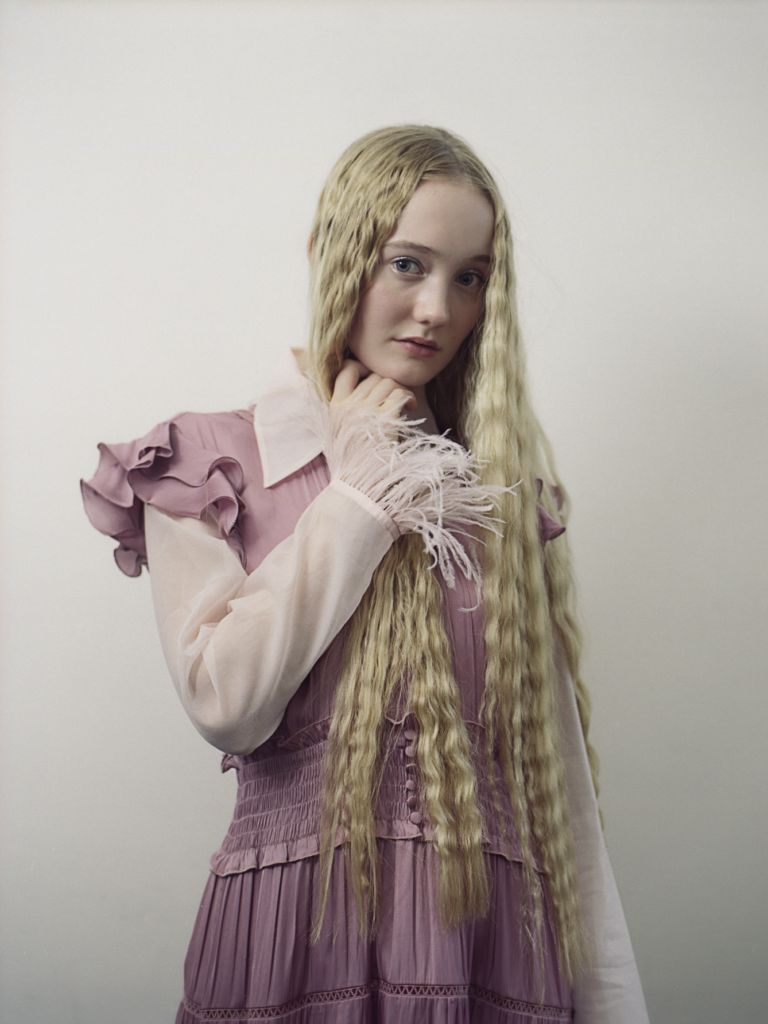
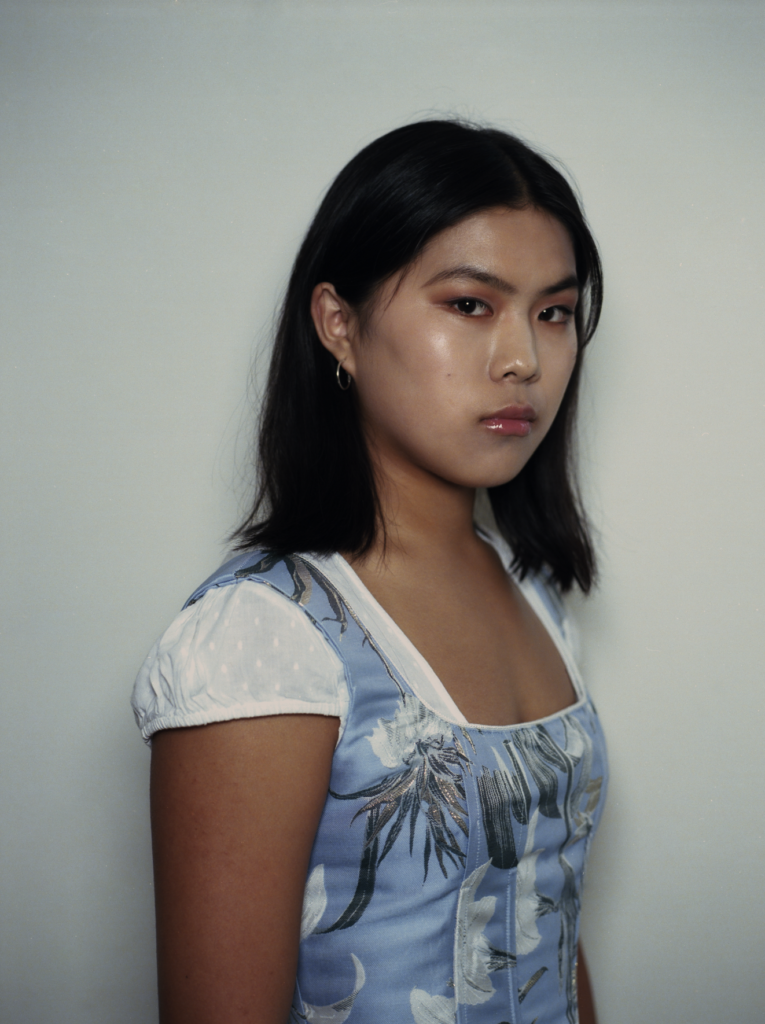
BP: I understand you are near completion on your latest work ‘Highway One’ which you described as semi-improvised.”Can you expand on that and the story line in general.
JB: Yes, the film was based on a fifty page treatment – that the actors then improvised from. All the main dialogue between the two leads Nina and Maria was scripted to provide a sort of base. The film takes place at a New Year’s Eve party in small town California, it is modern but also has a huge feeling of nostalgia. The story sets into motion when Nina, a girl who left the town years ago comes back and ignites the feelings of her best friend. It’s really an unrequited love story between two women but also it’s very much an ensemble piece, with a very fun mix of relatable yet eccentric partygoers. I think it brings to mind the setting of something like The Big Chill – mixed with the visual design of an Anna Biller film. Also, there are stylistic, sort of absurd touches. And the ending is very unique and surprising. All the characters have Russian names, there’s a lot of very high and very low Chekhovian emotions at play in the supporting characters.
BP: Obviously you are extremely passionate about women in film. Can you talk about your personal feelings as a female director. Who are your heroes in the field.
JB: I think I am passionate about women and film. I think those two things should feel much more unified than they actually are. I think about how equality still seems to be such a problem in this country. I am from the Deep South and I am definitely a misfit here. However, I had a very peaceful upbringing and didn’t feel so different, other than maybe I was extremely interested in the arts, unlike most kids. It wasn’t until shortly after college that I felt somewhat misunderstood. I wasn’t settling down, having kids and living the ideal Southern life. I was hugely artistic, in a place that inadvertently placed women in a certain position. Of course, women can have and should have both career and family, but I didn’t see myself being able to pursue a film career from Mississippi. But being from the South – such a specific experience, really fuels my storytelling. I am an outsider in the South, yet I am an outsider in every other place too. It’s so interesting.
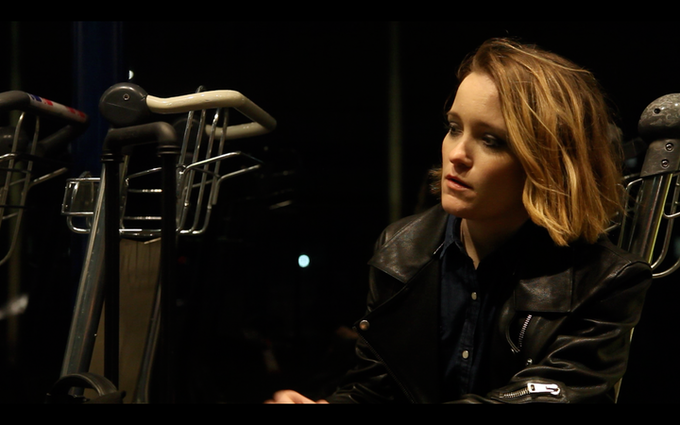
I didn’t always know I was a director. I wasn’t the kid who picked up a camera at age five. All of that happened much later for me. But I was always interested in storytelling and observing life in a unique way. My heroes are many. The ones that come to mind are Liv Ulmman, Barbara Loden, Jane Campion, Gena Rowlands, Julie Delpy, Celine Sciamma, Cate Shortland, Mati Diop, Josephine Decker, Chantal Akerman, Ava Duvernay, Sarah Adina Smith, Cate Blanchett… I like women that are multi-faceted, that historically and currently making a difference in front of and behind the camera.
BP: What drives you.
JB: I’ve been thinking about this alot, considering the times. I think ultimately, it’s a feeling and need that I have to do this with my life. That art is my calling, no matter what the consequences. There are a few instances I have definitely failed, and almost quit. But all those experiences, they feed you and keep you going. I hope that my generation can make art that will essentially help make the world a better place. That our grandchildren won’t grow up in a world that is so divided and full of so much hate, where diversity is just accepted and not talked about. That I can make films that become an emblem for a certain time, a certain feeling, a certain age. That’s what drives me.
CREDITS:
All images and films courtesy of Jaclyn Bethany
JULIET PHOTOGRAPHY CREDITS:
Director: Jaclyn Bethany
Producer: Lucy Chappell
Photographer: Asia Werbel
Photography Assistant: Tyler Matthias
Stylist: Liu Hoi
Casting Director: Lisa Dymph Megens
Art Director: Domenica Marland
Makeup: Billie McKenzie
Makeup Assistant: Clémentine Béclier
Shot at Bonnington Centre, London
Special thanks to Allegra Marland, Irene Gomez-Emilsson
JULIET FILM CREDITS:
Director: Jaclyn Bethany
Director of Photography: Irene Gomez-Emilsson
Producer: Lucy Chappell
Art Director: Domenica Marland
Casting: Lisa Dymph Megens
Styling: Hoi Liu, Assisted by Wooi Jang
Makeup: Billie McKenzie, Assisted by Clementine Beclier
Original Music Composed by Polly Wright
Still Photography by Asia Werbel, Assisted by Tyler Matthias
Edited by Rebecca Morandi
